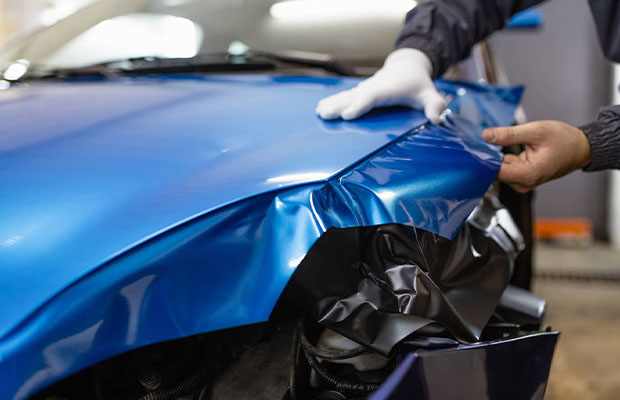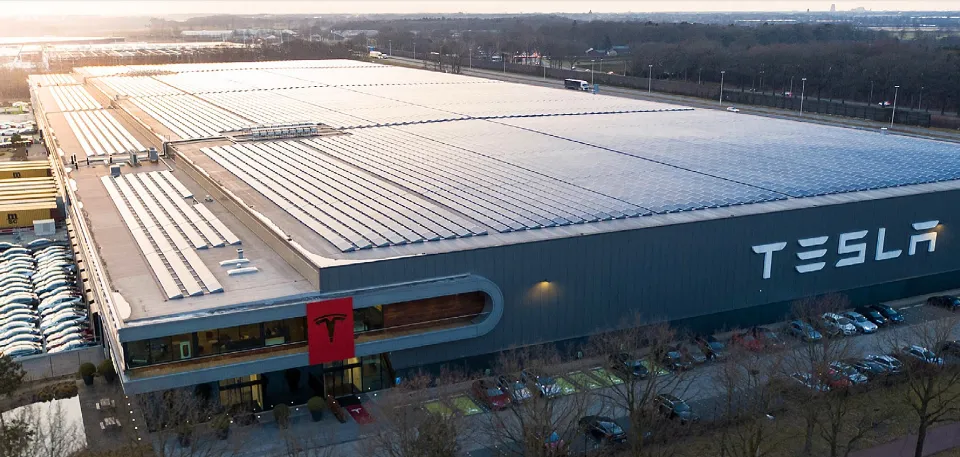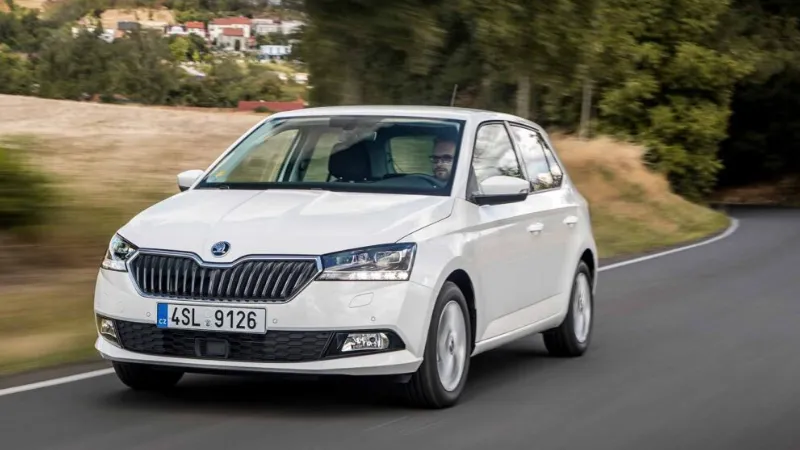Would you prefer a dull, dated, plain car? Or do you want your vehicle to stand out on the road by being vinyl-wrapped, branded, and eye-catching? Recently, car wraps have gained enormous popularity. A wrap can give your car’s paint and surface adequate, long-lasting protection in addition to giving you the option to completely alter its appearance.
How much does it cost to wrap a car? In general, car wraps can cost as little as $2000 for a small, two-door vehicle and as much as $10,000 or more for a bigger, more complex vehicle wrap. However, the price of a vehicle wrap will typically fall between $2,500 and $5,000.
Keep reading to dig out more information about car wrap.
Car Vinyl Wrap
It’s important to note that there are many factors that affect the price of a vehicle wrap before we get into the specifics. As Car and Driver explains, “prices vary drastically, based on the size of your car, the complexity of the wrap, and how much labor is required.” For instance, it will take longer to properly install the vinyl wrap if the body of your car is more curved than others or has an unusual shape.
Location, the kind and caliber of the materials used, whether or not the wrap contains graphics or visuals, the difficulty of those graphics, and whether or not you require assistance with the car wrap design are additional elements that could affect the cost.
Cost Of Wrapping A Car
The labor-intensive nature of the process is what drives the majority of costs associated with having your car professionally wrapped. For the simplest and most fundamental wrap applications, the following price ranges typically apply. For instance, due to its smooth, flat, and straightforward exterior design, a Tesla is surprisingly one of the easiest vehicles to wrap. The cost starts to rise as soon as upgrades like specialty vinyl, personalized designs, and wheel wrapping are added.
Here are the typical base prices for hiring a pro to wrap your car.
- Compact car or coupe: Depending on the design, prices start at around $2,000 but can vary.
- Family sedan: About $3,000 would buy you a family sedan on average.
- Compact crossover: The majority of small crossover vehicles have a $3,500 starting price.
- Full-size SUV: The starting price of a full-size SUV is most likely around $4,000.
- Luxury sports car: Expensive luxury vehicles can cost up to $10,000+ and start at around $5,000. For instance, experts estimate that a Ferrari wrap would cost the owner about $7,000.

Partial Vs. Full Car Wrap Cost
A full car wrap will cost more than a partial wrap or decal, as is to be expected. To provide a point of reference, a partial wrap is more likely to cost between $1,000 and $2,000 in total. More affordable are decals. If you’re on a tight budget, partial wraps or vehicle decals are fantastic ways to advertise your company while driving. But in order to get the most views, you’ll need to be wise about where you put the decals or partial wrap.
DIY Option
We must lead this section off by saying that we highly advise having your car wrapped by professionals with the experience and expertise to execute the application properly. Applying a wrap can be time-consuming and challenging, as we’ve explained throughout this article. To avoid any mishaps or potentially disastrous application errors, it is best to have the job done by professionals.
The process is less expensive than hiring a professional installer, though, if you believe you have the experience and technical know-how to handle it yourself.
Rolls of the common 2080 Series Gloss Black vinyl wrap from 3M cost between about $36 for 10 square feet and $420 for 200 square feet.
Vinyl would need to cover about 250 square feet of the average car. Considering this, the typical DIY car wrap will cost you between $500 and $750 in vinyl. The vinyl brand, vinyl retailer, and the color and style of the wrap will all affect these prices.
You May Also Like: How to Wax a Car?
Benefits Of Vinyl Car Wraps
- In comparison to a professional paint job, they are quicker to apply.
- Removal of a car wrap is simple and won’t harm your car.
- With the right maintenance and care, they can last up to 10 years.
- Compared to a painted car, they require less regular upkeep.
- They serve as an additional layer of defense for your car, guarding the original paint from dings and scratches.
- Stunning graphics, text, and images can be added to completely customize them.
- They can aid in raising brand awareness and giving your company a more polished appearance.
- The most crucial factor is that vehicle wraps are a powerful, memorable, and economical form of advertising. In actuality, a 2019 study discovered that 64% of U.S. residents surveyed noticed a wrapped vehicle advertising in the last month, and 44% noticed one in the last week!
Popular Vehicle Wrap Colors
A vinyl wrap’s seemingly limitless design and color options are one of its exciting features. The use of a computer program to design a vehicle wrap allows for the creation of distinctive colors and graphics that would be very expensive and challenging to achieve with paint.
Consider your goals when choosing the color of your wrap because color has the power to make a bold statement and even elicit strong emotions. If keeping up with the latest fashions is your goal, you can get ideas from common vinyl wrap hues like matte black, rich jewel tones, and chrome-toned hues.
However, if the purpose of your vinyl wrap is to promote your company, you should probably stick with colors that are representative of your brand rather than adopting the newest fashions. Increased brand recognition will result from this.
Read More: How To Clean Your Car Windows?
How Long Does It Take To Wrap A Car?
The length of time needed to wrap a car varies depending on the size, curvature, and extent of the job.
If you decide to go with a professional on this endeavor, then they’ll most likely ask you to drop off your vehicle the night before the actual wrapping.
They will be able to thoroughly clean and detail the exterior as well as every surface to the wrap will adhere.
They’ll make sure your car is prepared for the best, longest-lasting wrap.
It might take about 2-3 days in total, not counting the time needed for the adhesive to cure.
Please be aware that if you choose to DIY, there are plenty of materials available to help you wrap your car properly and get the most out of the wrap you buy.
Depending on the tools you use and the time you have set aside for this project, you can complete the wrap in about 2-3 days.
Before showing off your ride’s new appearance, give the adhesive at least 12 hours to cure.
How Long Does a Wrap Last?
Your new car wrap can last between five and seven years if installed properly. The type of wrap you use, the preparation you make before wrapping, the installation, and the proper maintenance are all factors. Sometimes getting a good deal on a durable wrap is essential.
If you don’t take care of your wrap, some things may harm it. The biggest concern is sun damage, followed by extreme weather. It seems as though Mother Nature is envious of your car’s new appearance! You should invest in a car cover if you don’t plan to have your car in a garage. It will last longer if the vinyl is protected.
With the new wrap, you should also give your car a regular wash. The lifespan of the wrap can be shortened by dirt and grease accumulation because they eat away at the color and protective coating.
This guide will go over how to wash a car at home and some frequently asked questions about best practices for washing cars in order to assist you in keeping your car clean.
Related Reading: How Long Does a Car Wrap Last?
FAQs
Is Car Wrapping Worth It?
Yes, it is worth it because painting is much more difficult and expensive to change or replace than replacement.
What Is The Price To Wrap A Car Yourself?
A typical price would range from $500 to 750 dollars.
To cover the typical car surface, you would need about 250 square feet of vinyl.





